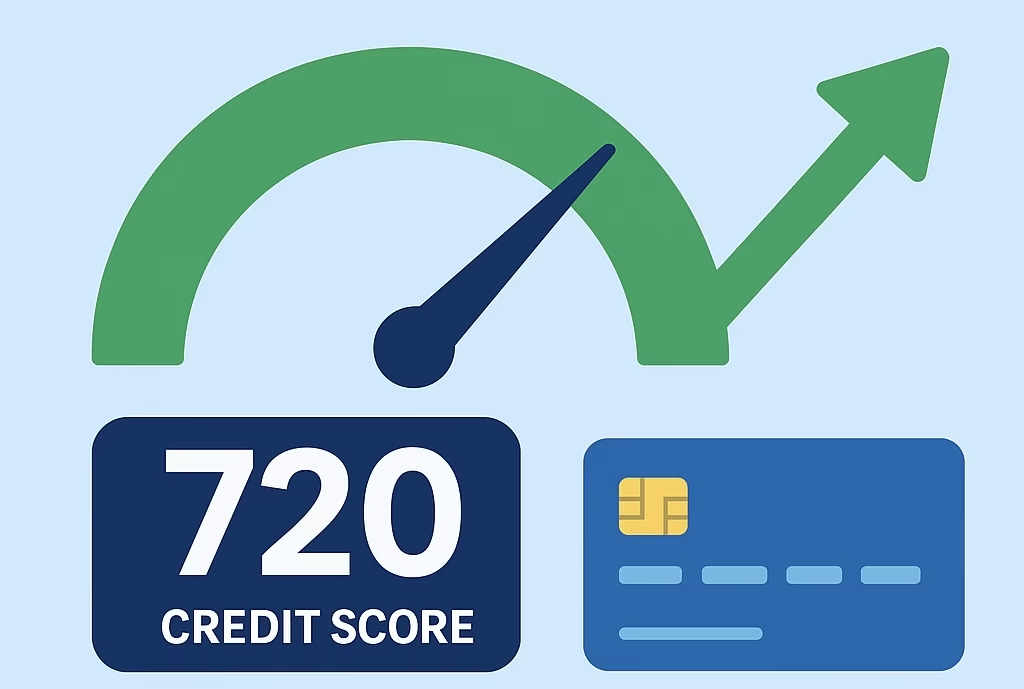Your credit score plays a critical role in your financial life. It affects your ability to get loans, credit cards, mortgages, and even jobs. A higher score means better interest rates and more opportunities. But what if you need a quick boost? Can you really raise your credit score by 100 points in a few days?
The short answer: It’s possible—but only in certain situations. If your score is already high, a 100-point jump in days is unlikely. But if you have errors, high utilization, or limited credit history, you can see significant improvements fast. Here’s how to do it step by step.
1. Pay Down Credit Card Balances
Credit utilization—the ratio of your credit card balances to your limits—accounts for about 30% of your credit score. Lowering this ratio can have an immediate impact.
- Goal: Keep utilization below 30%, ideally under 10%.
- Action: Make large payments or move funds to pay down balances.
- Impact: Your score can rise in a few days once payments are reported to credit bureaus.
Example:
If you have a $5,000 credit limit and owe $3,000, your utilization is 60%. Pay it down to $500, and your score could jump significantly.
2. Ask for a Credit Limit Increase
If paying down debt isn’t an option, increase your available credit.
- Action: Contact your credit card issuer and request a credit limit increase.
- Tip: Ask if it can be done without a hard inquiry, which can temporarily lower your score.
- Impact: If approved, your utilization ratio improves instantly once the new limit is reported.
3. Dispute Errors on Your Credit Report
Credit reports often contain mistakes, such as incorrect late payments or duplicate accounts.
- Action Steps:
- Get your free report from AnnualCreditReport.com.
- Review for errors (late payments, incorrect balances, old accounts).
- File disputes online with Experian, Equifax, and TransUnion.
- Impact: If a major error is removed, your score can rise within days to weeks.
4. Become an Authorized User
This is one of the fastest ways to improve your credit score if you lack credit history.
- Action: Ask a family member or friend with excellent credit to add you as an authorized user.
- Benefits: Their good payment history and low utilization help your score.
- Impact: Once reported, you can see improvement within a few days to a month.
5. Pay Off Collections or Negotiate Removal
Collections hurt your score, even if they’re small.
- Action: Contact collection agencies and negotiate pay-for-delete agreements.
- Tip: Get written confirmation before paying.
- Impact: Removal of collections can raise your score significantly once updated.
6. Use Experian Boost
Experian Boost allows you to add utility, phone, and streaming payments to your credit report.
7. Avoid New Hard Inquiries
While you’re trying to improve your score, don’t apply for new credit.
- Each hard inquiry can lower your score by 5–10 points.
- Focus on actions that improve your current profile instead.
Quick Tips for Fast Results
- Make sure all your accounts are current (no late payments).
- Set up automatic payments to avoid future late marks.
- Don’t close old accounts (long credit history helps your score).
How Long Does It Really Take to Raise Your Score by 100 Points?
- Few Days: Possible if you pay off large balances or get a credit limit increase.
- 1–2 Weeks: Disputes resolved or authorized user accounts added.
- 30–60 Days: Full impact from multiple improvements.
Final Thoughts
Raising your credit score by 100 points in a few days is challenging, but with the right steps—like paying down debt, correcting errors, and using tools like Experian Boost—you can see a noticeable improvement quickly. Consistency and good habits will keep your score climbing for the long term.
FAQs
1. Can I raise my credit score 100 points in 30 days?
Yes, if you have high credit utilization or errors on your report and fix them quickly.
2. Does paying off all credit cards improve my score immediately?
Yes, once your payments are reported to the bureaus (usually within a few days).
3. Will closing old accounts help my score?
No, it can hurt your score by reducing your credit history and available credit.
Disclaimer: This article only intends to educate and spread awareness about credit needs like loans, credit cards, and credit scores.We advise investors to discuss with certified experts before taking any credit.

